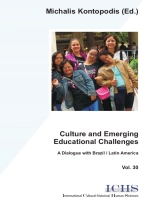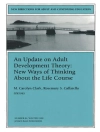This book is the result of a long movement of ideas and practices between Brazil
and Germany. It brings together different research methodologies (discourse
analysis, case studies, cross-cultural comparison, and action and practice-
research) and studies innovative theoretical approaches and childhood-related
practices that question present power relations and open up new ways of dealing
with emerging phenomena in the fields of school and educational policy as well
as in home-rearing, therapeutic, and community practices. A series of critical
case-studies and examples of radically innovative educational, media and
therapeutic practices and community-based interventions are presented, all of
which demonstrate the transformative powers of collective subjectivities in the
making of the history of childhood and youth and of society in general. The
studies presented in this volume also illustrate the role cultural-historical and
qualitative childhood research may play in this “making of history”. With an
introduction by M. Kontopodis and chapters by: I. Behnken, M. Benites, F.
Camerini, M. Damiani, B. Fichtner, F. Liberali, A. Lopes, M. Mascia, I. S. Soares,
H. Winkler, and W. Wörster.
A propos de l’auteur
Dr. Michalis Kontopodis has studied Psychology in Greece, France, Poland and
Germany and is currently a research associate at the Institute of European
Ethnology at the Humboldt University of Berlin. He is the Secretary of the
International Society for Cultural and Activity Research (ISCAR). Kontopodis is
engaged in both theoretical and empirical work on anthropological and cultural-
psychological approaches to human cognition and development. He has also co-
edited the Special Issue ‘Materializing Times: from Memory to Imagination’ of
Memory Studies (January 2009, Vol. 2, Number 1) and the book ‘Technologien
des Selbst im Alltag’ (with J. Niewöhner, in German 2009).












